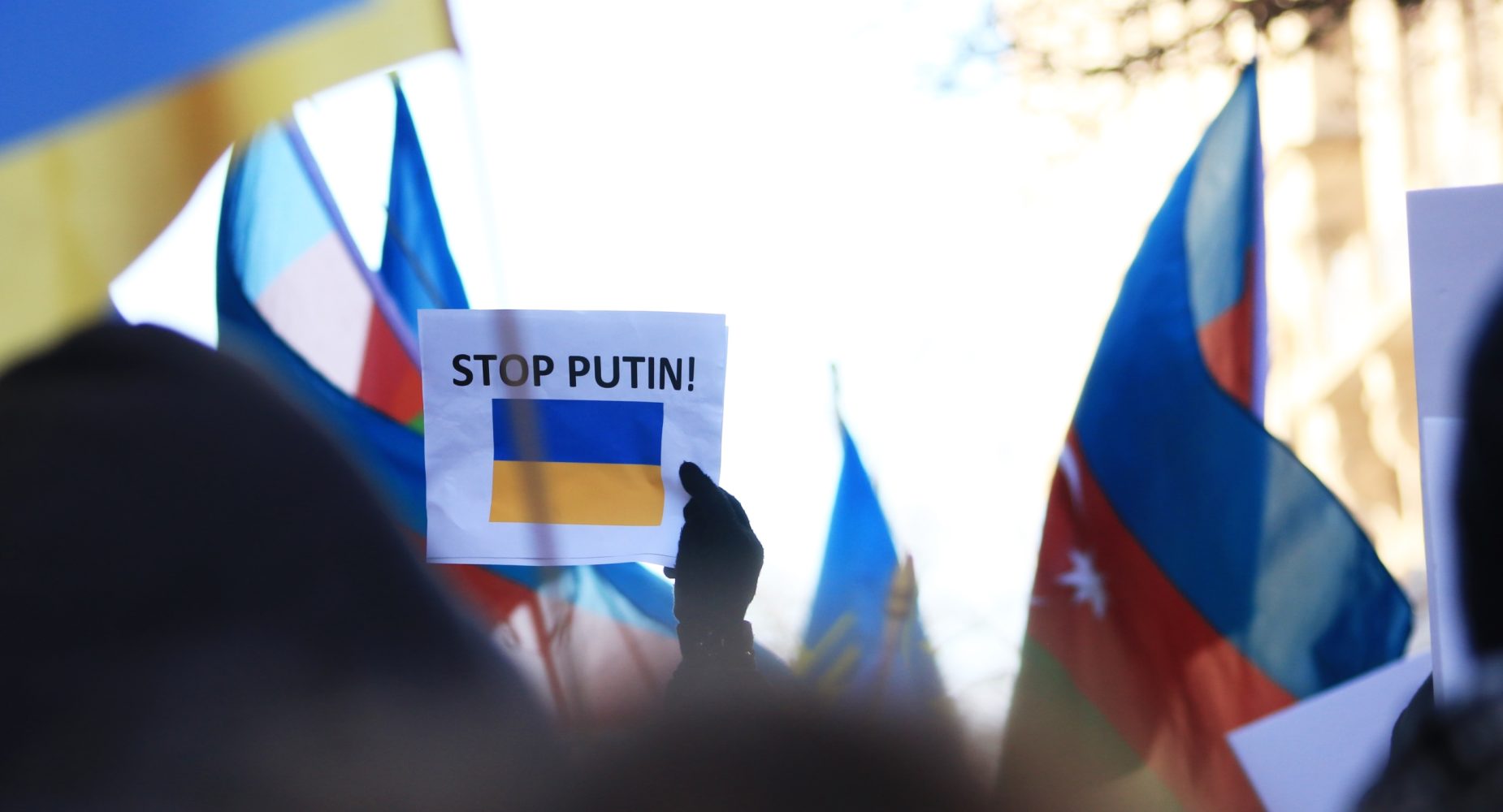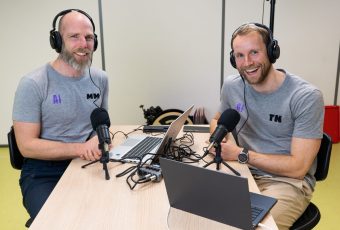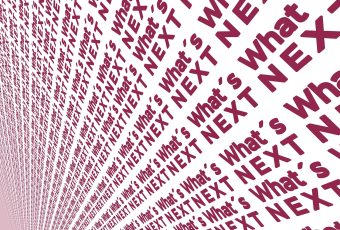
Russische HAN-student blikt terug na één jaar oorlog in Oekraïne
“Ik was bang dat ik zou worden weggestuurd”
Scroll down for English version
Toen Rusland vorig jaar Oekraïne binnenviel, verwachtte HAN-student Elena een soort ‘straf’ omdat ze Russisch is. Hoewel die uitbleef, veranderde de oorlog wel haar toekomstplannen.
De dag dat het allemaal begon, herinnert Elena (24) zich goed. “Het was donderdagochtend, 24 februari. Ik werd wakker en plots was er oorlog. Niemand had dit verwacht.” Rusland viel Oekraïne midden in de nacht binnen. “Het was zo’n schok. Ik herinner me dat ik rechtop in bed zat terwijl ik de eerste berichten las op Telegram (de Russische messenger). ‘Is dit een grap?’, dacht ik. Ik probeerde alles te verwerken, maar dat lukte niet.”
Staatsburgerschap
Elena is student Communicatie en komt uit Moskou. Sinds vijf jaar woont ze in Nederland. Ze wist nog niet waar ze wilde gaan wonen na haar studie, maar door de oorlog heeft ze een keuze gemaakt: “Ik heb besloten om staatsburgerschap in Nederland aan te vragen. Ik kan niet naar huis, naar dat autocratische regime.”
Bang om weggestuurd te worden
De eerste dagen na de invasie checkte Elena constant haar telefoon. “De meeste informatie kreeg ik via Telegram. Ik kon haast niet stoppen met nieuws lezen. Het duurde dagen voordat ik kon geloven wat er was gebeurd.”
Die eerste dagen was de schok voor haar overweldigend: “Dagenlang kon ik niet goed eten van de spanning. Ik ben niet naar mijn werk gegaan en heb twee weken vrij genomen. Ik kon me toch niet concentreren. Ik had het gevoel dat er een fundamentele wet was overtreden. Stel je voor dat Nederland België binnenvalt: het land dat het dichtstbij staat, waarmee je een historische en taalkundige connectie hebt. Dat kun je je niet voorstellen. En toch gebeurde dat.”
De schok maakte plaats voor een overweldigende paniek. “Net als veel andere Russische studenten was ik bang om van de HAN te worden weggestuurd, of zelfs het land uit te worden gezet”, zegt Elena. “We hadden verwacht dat Nederland ons hier niet zou tolereren.”
Informatie in Moskou
Elena’s familie en vrienden wonen nog steeds in Moskou. Soms krijgen ze andere informatie dan Elena, die westerse media tot zich neemt. “Rusland is inmiddels een autocratie waar geen vrije pers meer is. De meeste informatie op de Russische staats-tv is nep.”
Maar op het internet kun je volgens haar wel kritische informatie vinden. “Het is Rusland, geen Noord-Korea, dus dat kan wel.” De oorlog zorgt in haar familie soms voor wrevel. “Mijn ouders zien de oorlog ook als een zwarte bladzijde in onze geschiedenis. Mijn vader denkt net als ik. Maar mijn moeder kijkt soms ook nog naar de staats-tv. Ik heb geprobeerd haar ervan te overtuigen daarmee te stoppen. Maar ze zegt dat het haar helpt om informatie gebalanceerd te houden.
Met haar grootvader moest Elena van tactiek veranderen. “Mijn opa is 80 jaar. Hij voelt ook het verdriet van de situatie, maar hij steunt het regime. We hebben afgesproken het niet meer over politiek te hebben, omdat het schadelijk kan zijn voor zijn gezondheid.”
15 jaar voor verspreiden ‘valse’ informatie
Het leven van haar vrienden in Moskou is het afgelopen jaar veranderd, zegt Elena. “In het begin waren er veel demonstraties.” Maar toen nam het Russische parlement een wet aan die een gevangenisstraf van maximaal vijftien jaar oplegt voor het verspreiden van ‘valse’ informatie, zoals het erkennen van de oorlog in Oekraïne. Dus gingen de meeste van haar vrienden niet meer naar protesten.
Elena verloor het contact met enkele vrienden die het regime bleven steunen. “Onze verschillen werden te groot”, zegt ze. “Sommige mensen die aanvankelijk regeringsgezind waren, beginnen zich nu af te vragen of ze wel gelijk hadden. Dat is positief”, vind ik. Anderen blijven het regime verdedigen. Van hen denk ik: je hebt je kans gehad.”
Geen schuldgevoel
In een eerder interview, bijna een jaar geleden, vertelde Elena over de chatgroep voor Slavische studenten waar ze deel van uitmaakte, met onder andere Oekraïners en Russen. Ze was bang om eruit gegooid te worden of om iets verkeerds te zeggen. Een jaar later zijn veel Russen inderdaad uit de chatgroep gestapt. “We staan allemaal op goede voet, maar de situatie is soms gewoon te pijnlijk.”
Elena voelde zich een tijdje schuldig om Russisch te zijn, maar niet lang. “In Rusland was ik tegen het regime. Hier in Nederland ging ik naar demonstraties en hielp mee als vrijwilliger bij inzamelingsacties voor Oekraïne. Ik post regelmatig kritische informatie op Instagram. Ik hoop dat het helpt. Maar de oorlog is niet mijn schuld. Ik voel me niet schuldig. De regering is deze oorlog begonnen, niet ik.”
Haar toekomst ziet Elena in Nederland. “Ik wil hier blijven, het is veiliger. Russisch staatsburger zijn is op dit moment een last. Ik wil proberen mijn ouders ook hierheen te halen. Ik hoop dat het allemaal goed zal aflopen. En ik hoop dat het Russische en het Oekraïense volk op een dag vrij zullen zijn.”
Om veiligheidsredenen is de naam ‘Elena’ gefingeerd.
English version:
Russian student at HAN University looks back at one year of war in Ukraine
“I was afraid to be expelled or send out of the country”
When Russia invaded Ukraine last year, Russian HAN-student Elena expected some sort of ‘punishment’ for being Russian. Although that did not happen, the war did change her prospects for the future.
Elena (24) clearly remembers the morning that Russian forces invaded Ukraine. “It was Thursday morning, 24th of February. I woke up to a war. We all did. It happened in the middle of the night. It was such a shock. I remember sitting up straight in bed while reading the first messages on Telegram (the Russian messenger). Is this a joke, I thought? I tried to digest it, but I couldn’t.”
Citizenship in The Netherlands
Elena is a Communications student from Moscow. She has been living in the Netherlands for five years. She did not yet know where she wanted to live after her studies, but because of the war she made a choice: “I have decided to apply for citizenship in the Netherlands. I can’t go home to that autocratic regime.”
Afraid of being sent away
In the first days after the invasion, Elena constantly checked her phone. “I received most of the information through Telegram. I could hardly stop reading the news. It took me days to believe what had happened.” During those first days, the shock was overwhelming for her: “I couldn’t eat properly for days because of the tension. I didn’t go to work and took two weeks off. I couldn’t concentrate anyway. I felt that a fundamental law had been broken. Imagine the Netherlands invading Belgium: the country closest to you, with which you have a historical and linguistic connection. You can’t imagine that. And yet it happened.”
The shock gave way to overwhelming panic. “Like many other Russian students, I was afraid of being sent away from HAN, or even being expelled,” says Elena. “We expected that the Netherlands would not tolerate us here.”
Information in Moscow
Elena’s family and friends still live in Moscow. Sometimes they get different information than Elena, who absorbs Western media: “Russia has become an autocracy where there is no free press anymore. Most of the information on Russian state TV is fake.” But according to her, you can find critical information on the internet. “It’s Russia, not North Korea, so it’s possible.”
Resentment in her family
The war sometimes causes resentment in her family. “My parents also see the war as a black page in our history. My father thinks like me. But my mother also sometimes watches state TV. I tried to convince her to stop doing that. But she says it helps her keep information balanced.”
With her grandfather, Elena had to change tactics. “My grandfather is 80 years old. He also feels the sadness of the situation, but he supports the regime. We have agreed not to talk about politics anymore, because it can be harmful to his health.”
15 years for spreading ‘false’ information
The lives of her friends in Moscow have changed in the past year, says Elena. “In the beginning there were many demonstrations.” But then the Russian parliament passed a law imposing a prison sentence of up to 15 years for spreading “false” information, such as acknowledging the war in Ukraine. So most of her friends stopped going to protests.
Elena lost contact with some friends who continued to support the regime. “Our differences became too great,” she says. “Some people who were initially pro-government are now starting to question whether they were right. That is positive”, I think. Others continue to defend the regime. From them I think: you had your chance.”
No guilt
In an earlier interview, almost a year ago, Elena talked about the chat group for Slavic students she was part of, which included Ukrainians and Russians. She was afraid of being kicked out or saying the wrong thing. A year later, many Russians have indeed left the chat group. “We are all on good terms, but sometimes the situation is just too painful.”
For a while Elena felt guilty for being Russian, but not for long. “In Russia I was against the regime. Here in the Netherlands I went to demonstrations and volunteered for fundraising campaigns for Ukraine. I regularly post critical information on Instagram. I hope it helps. But the war is not my fault. I don’t feel guilty. The government started this war, not me.”
Elena sees her future in the Netherlands. “I want to stay here, it’s safer. Being a Russian citizen is a burden at the moment. I want to try and get my parents here too. I hope it all ends well. And I hope that the Russian and Ukrainian people will be free one day.”
For security reasons, the name ‘Elena’ has been changed.



Alle reacties (0)